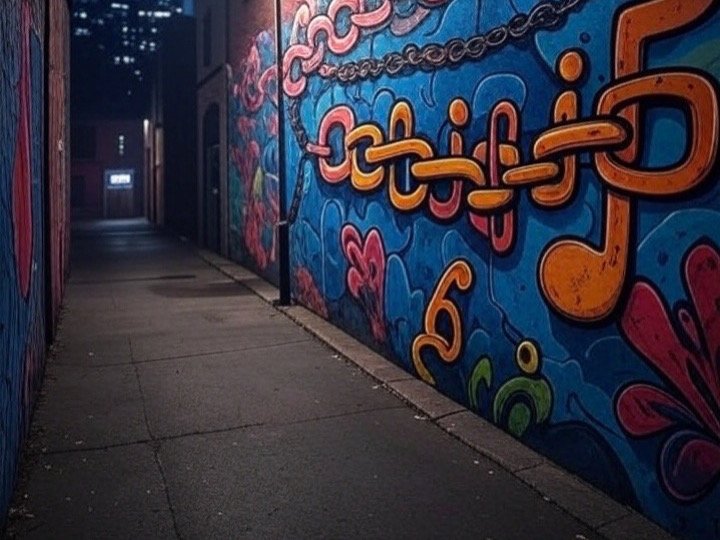Written by: Ana Nives Radović
Some songs define a year. Others capture a decade. A rare few crystallize a moral moment in time. But one track, released thirty years ago on August 1, 1995, did something more: it held up a mirror, and made the world stare. That song was Coolio’s Gangsta’s Paradise. With its slow, deliberate tempo and unflinching lyricism, it seeped into the lives of millions: dark, reflective, and unrelenting.
What made the song extraordinary was that its brilliance felt neither accidental nor engineered; it felt inevitable. It had to exist, because the reality it portrayed had grown too weighty to remain unspoken. In just four minutes, Coolio gave voice to a landscape often seen but rarely rendered with such raw dignity.
The opening line is drawn straight from Psalm 23, but here, it speaks less of spiritual faith than of spiritual fatigue. In Coolio’s voice, it isn’t a prayer, it’s a blueprint for survival. A life shaped by forces beyond willpower. A life where self-pity has long since burned off, leaving only a stark, unfiltered clarity. That clarity, brutal and beautiful, is what made Gangsta’s Paradise transcendent, then and now.
Few works so masterfully disguise complexity behind apparent simplicity. The illusion lies in a haunting minor-key melody, underscored by the criminally underrated L.V.’s choral lament and a sorrowful reinterpretation of Stevie Wonder’s “Pastime Paradise”, its lush strings and martial drums recast into something dirge-like. What emerged was one of hip-hop’s rare moments where rhythm, rhyme, and rebellion converged into something more like a secular hymn.
But Gangsta’s Paradise isn’t gospel. It’s gospel’s shadow, cast long and low across the concrete of Los Angeles, or any street where listeners might recognize its weary prophets and disillusioned saints. It showed that restraint can be more devastating than bombast. There were no sonic fireworks, no machine-gun bars, no hooks engineered for radio, or, today, for TikTok and Reels. There was only gravity, and the audacity to let it settle onto the listener like nightfall. This wasn’t a song you heard; it was a world you stepped into.
The song’s true power lies not in moralizing, but in its moral realism. It doesn’t beg for pity, and it hardly asks to be understood. Instead, it offers an unfiltered window into a closed system, one where violence and poverty aren’t root causes but inevitable outcomes. That’s what many failed to grasp then, and still do. Gangsta’s Paradise isn’t about living in fear; it’s about living without control. Coolio didn’t glorify that world. He diagnosed it. He narrated it from within, refusing to beautify or excuse it.
Although the narrator claims to be 23, Coolio was 31 when the track was released, a fact many only discovered after his death three years ago. He wasn’t some prodigy on the rise. He was a man who had lived enough to understand the cost of survival, and to articulate it carefully, patiently, one line at a time. And, somehow, against all odds, the world listened.
The song became the best-selling single of 1995 in the U.S., topped charts in 14 countries, and earned a Grammy and two MTV Awards. In the UK, where hip-hop was still on the cultural margins, it became the first rap single to debut at number one. It was played at school assemblies, dissected in op-eds, and famously (and controversially) parodied by “Weird Al” Yankovic. It was the soundtrack to Dangerous Minds, and, for many, the soundtrack to life.
At a time when gangsta rap was often dismissed as nihilistic or amoral, Gangsta’s Paradise slipped past the cultural gatekeepers. It didn’t rebrand itself as pop. It simply insisted that reckoning with harsh reality was as worthy of expression as any other emotion. In doing so, it reshaped public perception of hip-hop, not as a fleeting trend, but as a moral and artistic force.
Coolio never replicated the same level of success. How could he? Songs like this don’t just make careers, they define them. When he passed, even those who knew little about him mourned the voice behind a track that had, for many, become sacred, an anthem of survival, etched into a microcosm.
Thirty years later, Gangsta’s Paradise remains a reminder that a song born of fear and frustration can transcend its origin. That despair, when rendered truthfully, can still carry dignity. That art, when honest enough, will always find its audience. And that Gangsta’s Paradise was never an escape from a brutal world. It was, and still is, a journey straight into the heart of it.








Komentari (0)
POŠALJI KOMENTAR